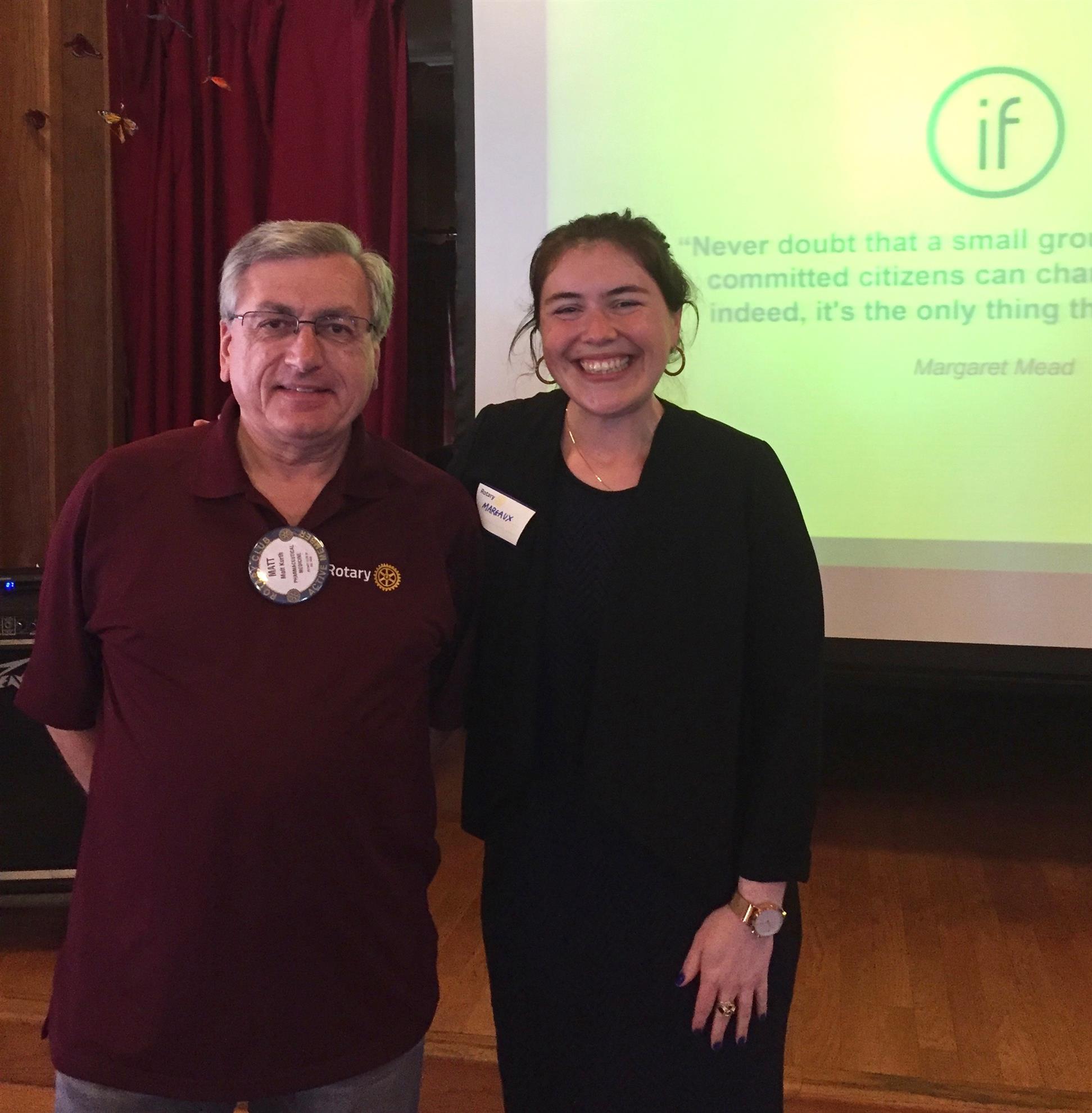
Matt Kurth with Margaux Stack-Babich of the Immunity Foundation
Did you know that some viruses can cause cancers and that there is an effective vaccine to prevent infections by these viruses and in turn the cancers they cause? The Immunotherapy Foundation (IF) has a three-pronged mission that seeks to: i) fund research to develop new immunotherapies for cancers that arise following infection with certain strains of the human papilloma virus (HPV); ii) raise awareness of the importance of vaccines (e.g., Gardasil 9) that prevent HPV infections and the cancers they cause; and iii) support patients diagnosed with HPV-driven cancers to find effective treatments and clinical trials.
Our speaker at the March 28, 2018 meeting, Margaux Stack-Babich, is a program manager for the IF. She told us that the IF was launched four years ago by Ralph and Fernanda Whitworth after Ralph was diagnosed with HPV-related cancer at the base of his throat. After treatment, Ralph was cancer-free for one year, but the cancer returned and unfortunately Ralph died from the cancer in 2016. Fernanda now serves as President of IF.
Traditional cancer therapies involve surgery, drugs or radiation. Many cancers cannot be treated surgically, while drugs and radiation often kill both healthy and cancer cells. Immunotherapies unleash the power of the immune system to selectively target cancer cells. These therapies can be tailored to a particular patient based on mutations present in the cancer, are systemic and long-lasting, have fewer side effects and are less susceptible to resistance.
Although the rate of cervical cancer has decreased in part due to enhanced surveillance and screening, studies indicated that other types of cancers associated with HPV, including oropharyngeal, vulvar, penile and anal cancer are increasing. Thus, immunotherapies for these cancers are urgently needed. IF provides seed funding for local researchers, including those at the La Jolla Institute for Immunology and the UCSD Moores Cancer Center, which has allowed them to gather preliminary data that are needed to secure larger grants from government agencies.
IF also stresses the importance of preventing HPV infections through vaccination. Both boys and girls should receive the vaccine, since males in particular often are unaware that they may have been infected with a cancer-causing HPV strain. Ideally, children should be vaccinated between ages 11 and 12 so that they have time to develop an immune response long before they become sexually active. Moreover, the immune response to the vaccine is stronger in the pre-teen years, meaning that vaccine-mediated protection is even more robust when delivered at younger ages. Thank you to Janice Kurth for suggesting the IF as a program topic.